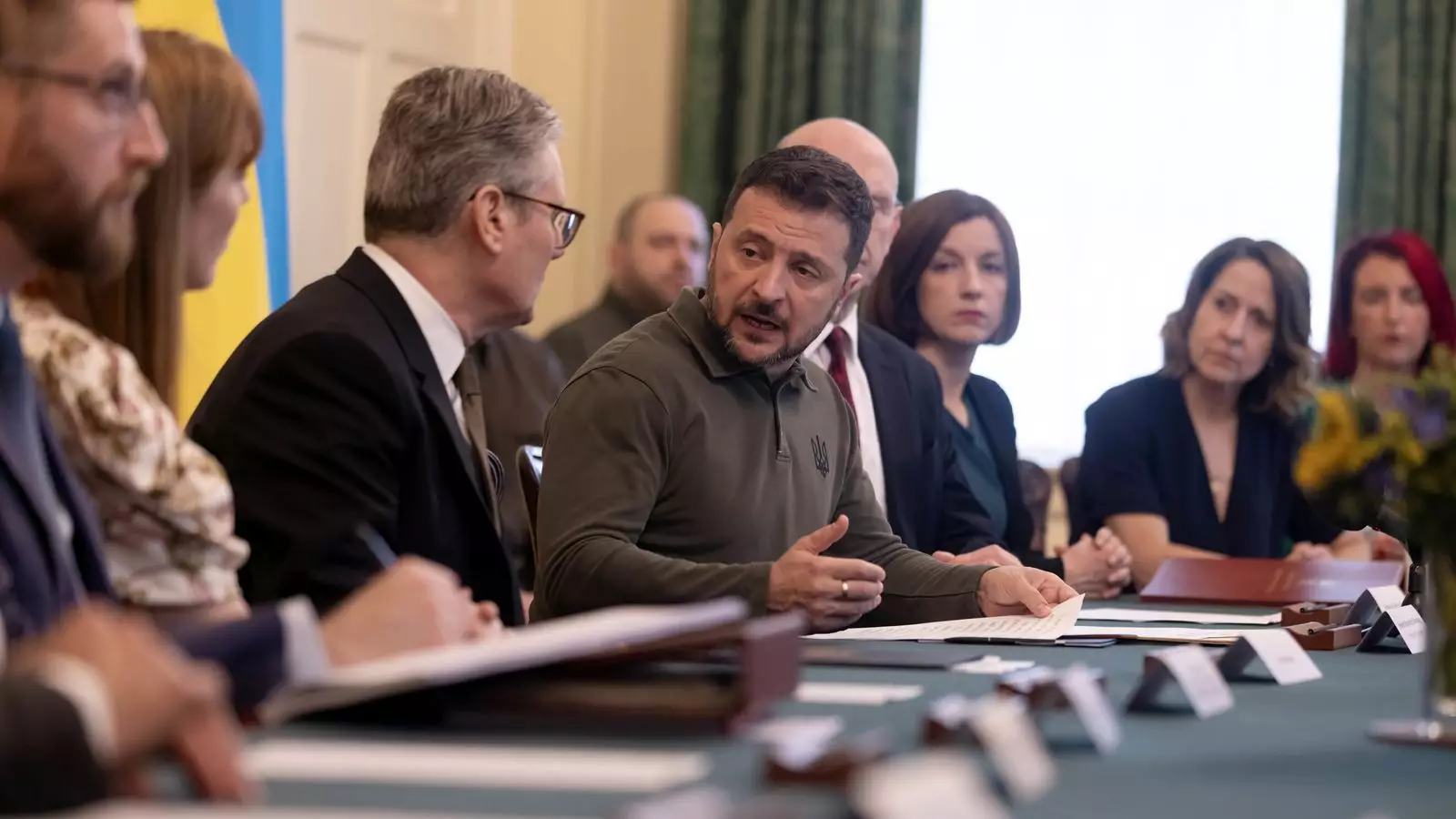The discourse surrounding UK defence spending is taking centre stage as political leaders grapple with complex geopolitical challenges. Recognizing the pressing need for increased investment in the armed forces, various cabinet members, including Business Secretary Jonathan Reynolds, are voicing the necessity for a united front on this issue. This growing consensus reflects not only the urgency spawned by current global tensions but also the complicated dynamics emerging within the government itself.
Key figures in the UK government are advocating for a more substantial commitment to defence financing. Despite conflicting reports regarding Chancellor Rachel Reeves’ willingness to allocate more funds, Reynolds insists that the entire government is on board with the need for heightened defence expenditures. He remarked that “most people in this country recognize the pressures the world is under,” highlighting a broader acknowledgment of the volatile international climate. This sentiment underscores a crucial shift towards prioritizing national security amid uncertainties.
The issue, however, is rife with contention, especially concerning financial commitments. Recent statements indicate that while there is an aspiration to meet a 2.5% GDP target for defence spending, the current expenditure hovers around 2.3%. The lack of a clear timeline for these increases raises questions about the government’s strategy and commitment to national security. The potential delay poses a real challenge as discussions about military readiness and resource availability become more pertinent.
The internal tensions within the government, particularly between Prime Minister Sir Keir Starmer and Chancellor Reeves, accentuate the complexity of these discussions. Reports suggest that Starmer is prepared to overriding Reeves regarding the defence budget, pointing to fissures in the cabinet regarding fiscal priorities. In essence, these discrepancies reflect a tug-of-war between fiscal restraint and the prioritization of defence in national policy—an inherently difficult balancing act in turbulent times.
The Prime Minister’s inclination to lead defiantly on defence matters may signal an urgent need to not only address recent criticisms regarding military preparedness but also align with broader NATO objectives. As tensions in Ukraine persist and discussions about peace negotiations resume, the UK’s defence posture is under scrutiny both domestically and internationally.
The calls for immediate improvements in defence capabilities resonate with security analysts and military leaders alike. Rachel Ellehuus, from the Royal United Services Institute, argues that with a shifting focus from Washington towards other global issues, there’s a critical need for NATO members to bolster their defence investments. The notion that the alliance’s current 2% target is insufficient suggests a pivotal moment that demands immediate reconsideration of defence strategies across Europe.
Ahead of an emergency meeting of European leaders, which will include intimate discussions about the ongoing conflict in Ukraine, the pressure mounts for the UK to assert itself as a proactive stakeholder in both European and NATO discussions. The urgency of these negotiations correlates with broader geopolitical ramifications, reflecting not only on military strategies but also on political relationships within the region.
The ramifications of the UK’s stance on defence extend beyond military spending; they influence diplomatic relationships with allies and adversaries alike. As Starmer prepares to bring messages from European discussions to meetings in Washington, his dual role of maintaining political integrity at home while asserting national interests abroad complicates the narrative. This delicate machinery of diplomacy reinforces the concept that strategic military investment is not merely about budgets but about geopolitical alignment and positioning.
With the geopolitical landscape continuously evolving, the call for a robust and adaptable defence strategy appears more urgent than ever. The UK’s decisions in the coming months could have far-reaching implications, not only for its own security framework but also within the broader context of NATO cooperation and international diplomacy. The interplay between budgetary decisions and global responsibilities signifies a crucial period for the UK government as it seeks to balance domestic priorities with its commitments on the world stage.
Ultimately, the government’s ability to reclaim the narrative on defence spending will hinge on its capacity to unify internal positions while responding effectively to the pressing demands of national and international security.


Leave a Reply